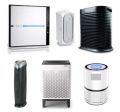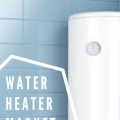Advanced Ceramics Market - Global Industry Analysis, Size, Share, Growth, Trends
Advanced ceramics are defined as nonmetallic inorganic solid materials that possess qualities such as corrosion resistance, low thermal expansion, high-temperature stability, and lightness of weight. They also possess electrical properties ranging from non-conductive to highly conductive. These highly diverse properties make advanced ceramics a preferred choice of materials for various applications in industries such as electrical & electronics, transportation, medical, defense & security, environmental, and chemical. The electrical & electronics segment accounted for significant share of the advanced ceramics market in 2016 owing to the high demand for advanced ceramics in the electronics industry across the globe
Key factors driving the advanced ceramics market include ecofriendly properties of these materials and rise in usage of advanced ceramics to replace conventional metals. Demand for advanced ceramics is expected to increase due to the rise in the demand for ceramics in the medical industry. This is encouraging companies to expand the production of advanced ceramics. Additionally, easy availability of raw materials is anticipated to boost the demand for advanced ceramics in the near future.
Request a Sample-
https://www.transparencymarketresearch.com/sample/sample.php?flag=S&rep_id=35366
The global advanced ceramics market is witnessing technological advancements. Companies are constantly striving to develop new and better advanced ceramics. Development of new manufacturing processes and applications of advanced ceramics is estimated to propel the advanced ceramics market. However, high cost of these materials vis-à-vis other materials such as metals is expected to hamper the global advanced ceramics market.
Based on material, the advanced ceramics market can be classified into alumina ceramics, titanate ceramics, zirconia ceramics, silicon carbide, and others (including aluminum nitride, silicon nitride, pyrolytic boron nitride, and magnesium silicate). Alumina ceramic is a commonly used advanced ceramic material due to its excellent physical properties. These ceramics are employed in end-use industries such as transportation, chemical, electrical & electronics, and medical.
Based on class, the advanced ceramics market can be classified into ceramic matrix composites, ceramic coatings, monolithic ceramics, and others which includes advanced coatings and multilayer ceramics. Monolithic ceramics are commonly used class of advanced ceramic materials owing to their excellent thermal resistance. Thus, these ceramics are preferred in applications where high temperatures are involved.
Request for covid19 impact analysis –
https://www.transparencymarketresearch.com/sample/sample.php?flag=covid19&rep_id=35366
In terms of geography, the advanced ceramics market can be segregated into North America, Latin America, Asia Pacific, Europe, and Middle East & Africa. Asia Pacific is anticipated to constitute key share of the market during the forecast period. It is estimated to be a rapidly growing region of the advanced ceramics market, owing to the increase in demand from the electrical & electronics industry in the region. Middle East & Africa is likely to be an attractive region of the advanced ceramics market during the forecast period, led by the increase in demand for these ceramics in the automotive industry in the region.
Prominent players operating in the global advanced ceramics market include Kyocera Corporation, CeramTec GmbH, CoorsTek, Inc., Saint-Gobain Ceramic & Plastics, Inc., and Morgan Advanced Materials Plc.
Pre-Book now-
https://www.transparencymarketresearch.com/checkout.php?rep_id=35366<ype=S
This study by TMR is all-encompassing framework of the dynamics of the market. It mainly comprises critical assessment of consumers' or customers' journeys, current and emerging avenues, and strategic framework to enable CXOs take effective decisions.
Our key underpinning is the 4-Quadrant Framework EIRS that offers detailed visualization of four elements:
- Customer Experience Maps
- Insights and Tools based on data-driven research
- Actionable Results to meet all the business priorities
- Strategic Frameworks to boost the growth journey
The study strives to evaluate the current and future growth prospects, untapped avenues, factors shaping their revenue potential, and demand and consumption patterns in the global market by breaking it into region-wise assessment.
The following regional segments are covered comprehensively:
- North America
- Asia Pacific
- Europe
- Latin America
- The Middle East and Africa
Companies in the Advanced Ceramics market have increasingly shifted gears with wide application of digital technology across the continuum, from raw material sourcing to manufacturing to generation of final output, to warehousing to final distribution operations. Among the various affects, the market is witnessing new growth economics due to thinning of line between specialty and commodity businesses that are associated with the larger ecosystem. At the same time, new growth parameters are being vigorously being debated as industry stakeholders put greater emphasis on the circular economy processes.
More Trending Report-









